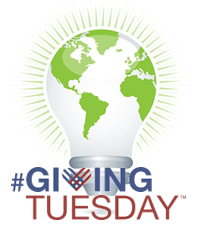 Did you know that 1.3 billion people – one in five globally – have no access to electricity? Some 95% of them live in sub-Saharan Africa or developing Asia. The world’s poorest are already paying the most as a proportion of their household income for inadequate, dangerous and unhealthy sources of energy.
Did you know that 1.3 billion people – one in five globally – have no access to electricity? Some 95% of them live in sub-Saharan Africa or developing Asia. The world’s poorest are already paying the most as a proportion of their household income for inadequate, dangerous and unhealthy sources of energy.
Annual global expenditures for dim, dirty and dangerous kerosene-based lighting amounts to $37 billion, but how can we quantify the human costs – of a child severely burned by spilled kerosene, or a toddler who drinks kerosene thinking it is water and develops chemically induced pneumonia? Of a fire that rampages through a shanty town, or people dying of cholera because doctors can’t see well enough to place an IV drip? Exposure to smoke from hazardous methods of cooking and lighting kills nearly 2 million annually, most of them women and children – and more women are severely burned by kerosene-related accidents each year than are diagnosed with HIV and TB combined.
Without access to modern energy services, this is the grim reality for so many of the world’s poorest and most vulnerable.
The United Nations Foundation is working to address these issues within the UN-led Sustainable Energy for All initiative.
What can we do to help?
As part of Giving Tuesday, learn how some organizations are working to change the status quo, and how you can join this global movement towards delivering sustainable energy services for all.
Save Lives: WHO estimates that 200,000 to 400,000 healthcare facilities in developing countries lack access to reliable electricity. Almost any procedure can wait until morning except for childbirth: Worldwide, 358,000 women die during pregnancy and childbirth every year, yet maternal mortality can be reduced by 70% with the provision of minimal lighting and appliance operating services. WE CARE Solar manufactures “solar suitcases” – an economical, easy-to-use portable power unit that provides health workers with highly efficient medical lighting and power for mobile communication, computers and medical devices. Solar suitcases were first deployed in Nigeria and Liberia, and are now being requested in more countries around the world. To find out more and donate, visit www.wecaresolar.org.
Send Solutions: Enèji Pwòp (“Clean Energy” in Haitian Creole) was created by EarthSpark International, a non-profit organization, to build supply chains and business practices to support small-scale clean energy entrepreneurs in Haiti. Haiti’s poverty goes hand in hand with a lack of access to productive energy resources and efficient end-use technologies: Fewer than 25% of households in Haiti are connected to an electricity grid. Eneji Pwòp delivers energy solutions to Haiti’s poor and enables the Haitian diaspora to send clean energy products to friends and family, re-channeling remittances as a powerful sustainable energy financing mechanism. To learn more and contribute, visit www.earthsparkinternational.org and www.enejipwop.com.
Support Sustainable Energy for All: Music for Relief is a grassroots effort of musicians, music industry professionals, and fans, established by the band Linkin Park to help those affected by disasters. Music for Relief has pledged to help 1 million families gain access to sustainable energy throughout 2012. Through direct donations fans and friends can support Earthspark International and We Care Solar to save lives and improve the quality of people’s lives in developing countries. To donate and help spread the word, visit www.musicforrelief.org.

